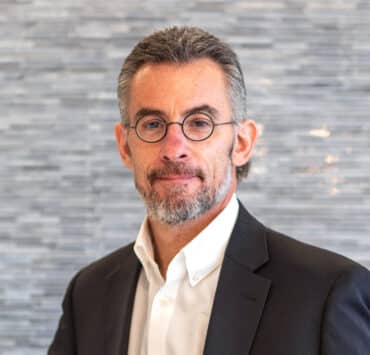In the wake of COVID-19, many US hospitals have been struggling to fill vacant positions. Confronted by a shallow pool of resources, hospitals must ensure their staff is focused on those healthcare tasks that only humans can perform, while delegating other tasks to technology. Jennifer Indiviglio, assistant vice president of revenue cycle at White Plains Hospital in White Plains, New York, is leveraging a variety of technologies, like bolt-ons, automation, and artificial intelligence to streamline her revenue cycle processes, freeing up staff to focus on patient care.
“It’s an ongoing process,” she says. “We’re looking at what we get in and what we can do as early as possible from scheduling, registration, even from practice referrals.”
The goal is to reduce friction by streamlining all three stages of the revenue cycle. At the cycle’s front end, she seeks to automate eligibility checks and authorizations. For example, if a payer continually denies claims because it can’t find authorization for a service at scheduling, she’s using technology to inform the team so services are authorized.
Mid-cycle she’s streamlining the way in which the system gathers health information management and coding and how it identifies vendors assisting in the workflow.
Finally, at the end of the cycle, Indiviglio’s goal is to leverage technologies that automatically access payer’s websites and pull information. “Technology is allowing us to automate administrative tasks that historically have been burdensome, freeing up our staff so they can concentrate on the high-value tasks,” she explains.
The teams Indiviglio has tapped to help with this are proud to do so. “We successfully partner with Jennifer and her team by managing their oncology revenue cycle, one of the most rule-laden and labor-intensive components of any hospital revenue cycle,” says Joseph Cassidy, CEO of Oncology Revenue Services. “Since oncology is all we do, we don’t just provide additional hands; we supply expert assistance.”
Advertisement
It’s a matter of reducing “touches,” or the number of individuals and groups that access the same account to take an action, like contacting a payer or following up with patient. “If we have, for example, a payer that is always looking for medical records, how can we leverage rules in our system so that we can get the records sent directly to them proactively before they ask for it?” Indiviglio asks.
Another goal is reducing speculation by hospital staff. “For example, this patient has Aetna, and I know Aetna sometimes [requires notification],” she explains. “Build it into the system and take the guess work out of it. Reduce the lag time and—the need for—a denial person to look at the case and another follow-up person.”
Staff shortages have forced Indiviglio to demonstrate inventiveness. “Healthcare organizations across the country are facing a shortage of talent. We are constantly evaluating the resources available to us to continue functioning efficiently,” she says. Supplemental staff, leveraging technology, and cross-training are all on the table.
“Technology is allowing us to automate administrative tasks that historically have been burdensome, freeing up our staff so they can concentrate on the high-value tasks.”
Jennifer Indiviglio
In addition to administrative burdens and post-COVID staffing shortages, governmental regulations place significant burdens Indiviglio’s team. “We must put in a lot of different processes up front. It creates a lag time,” she says. In the past, White Plains staff registered forty patients in a shift. An increase in forms requiring patient signatures and payer authorizations has reduced that number to thirty.
Interacting with a variety of departments and individuals, Indiviglio has placed a premium on educating all parties involved. “We’re experts in our field. But when we talk coding rules with a provider, it’s like we’re speaking another language. We need to interpret and explain,” she says.
With new healthcare legislation being passed frequently, Indiviglio uses a variety of forums, newsletters, and websites to remain mindful of the ever-changing healthcare regulations to remain in compliance. “As part of the Montefiore Einstein Health System, we really collaborate with other hospitals in our network to better understand what they are doing, and we work with our compliance team to ensure privacy is always protected,” Indiviglio explains.
Sites like the Healthcare Financial Management Association and the Greater New York Hospital Association prove invaluable. “They even do a lot of advocating for hospitals,” the AVP says. “So, they’ve been able to get laws updated, especially those that would be impossible to implement.” They even lobby on behalf of hospitals and patients seeking more protections.
“It’s what you do today that shows that you’re ready for tomorrow. It’s about the integrity of the work that you’re performing. It’s what you do when no one is looking or behind you.”
Jennifer Indiviglio
While these organizations advocate for hospitals and patients, so too does Indiviglio and her team by keeping payers in line with terms in the face of rising denials. “We have to be that advocate for ourselves and our patients, holding payers accountable. We cite regulation and pull language from our contracts and send it back to these payers to show them they are not providing what they’re supposed to be providing. It’s still an obstacle,” Indiviglio notes.
Reporting directly to the CFO, Indiviglio has five direct reports, operates with total transparency, and eagerly rolls up her sleeves to solve problems through collaboration. “I am hands on. I like to be involved and aware of what is happening. I expect the same level of output [from my team] that I give,” she says.
Indiviglio subscribes to the adage, “It’s what you do today that shows that you’re ready for tomorrow. It’s about the integrity of the work that you’re performing. It’s what you do when no one is looking or behind you. And that’s how I have always worked,” she says.
With its frantic pace and growing obstacles, healthcare has its share of challenges. “But it’s rewarding,” she says. “What you put in, is what you get out and the work we are doing behind the scenes is so important to our patient population.”
At Oncology Revenue Services we provide clients with specialized support in what is typically the most technically challenging and labor-intensive components of a hospital’s revenue cycle. For more than fifteen years ORS has specialized in medical oncology, infusion, and radiation oncology, in fact that’s all we do. Our services range from auditing and lookbacks to day one billing for hospital-based cancer centers.
Not only do our clients typically experience both significant increases in collections and fewer denials, but they are also afforded the opportunity to redirect their limited resources to other areas, thus improving the entire accounts receivable.
RSi is an award-winning revenue cycle management service provider for the hospital and large physician practice market. We simplify and solve the most imminent challenges for revenue cycle leaders with measurable ROI, superior value, and strategic insights. RSi’s solutions offer an attractive value proposition for hospitals and other organizations seeking outsourced services while maintaining best in class patient financial experience. Since 2016, we have endeavored to be White Plains Hospital’s “best employee,” and we deeply value our relationship with the award-winning hospital’s AVP of Revenue Cycle, Jennifer Indiviglio. Your Goals. Our People.
Since 1989, Health/ROI has been assisting more than 120 hospitals in New York, New Jersey, Connecticut, and Pennsylvania in assessing and rectifying their hospital reimbursement systems. Our dedicated team, comprising over 60 professionals, including registered nurses, health information specialists, and CPAs, collaborates to address the demands of government payer guidelines and managed care contracts.


